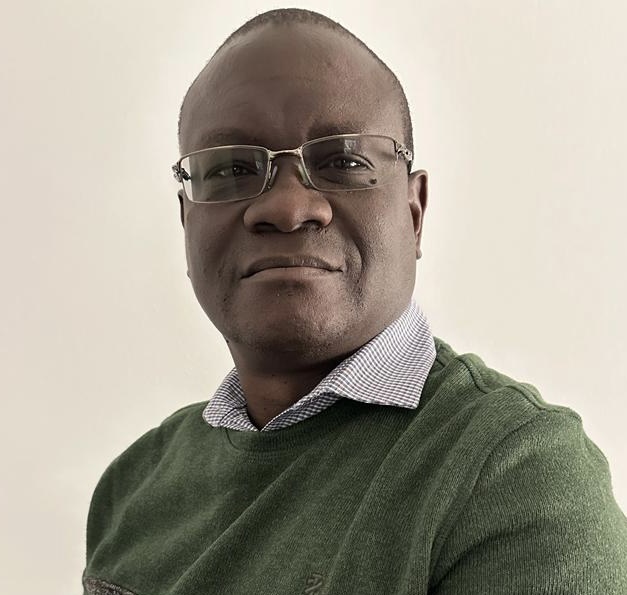Three Questions about Scaling and Sustaining Progress against Malaria in Nigeria
Three Questions about Scaling and Sustaining Progress against Malaria in Nigeria
![[A Minna hospital employee checks a blood sample for HIV.] {Photo credit: Gwenn Dubourthoumieu - Niger State, Nigeria}](https://msh.org/wp-content/uploads/2015/05/msh_dubourthoumieu_nigeria_.jpg)
MSH is turning the tide in the global fight against malaria. Through the US President’s Malaria Initiative for States (PMI-S) Project, we are working with the Government of Nigeria at all levels to make sure people have access to quality services to help them prevent and manage malaria. With the largest population in Africa, Nigeria is also home to 31%[1] of the world’s malaria deaths. That’s why our work here—largely focusing on pregnant women and young children—has the potential for tremendous impact. In this brief conversation, MSH Senior Principal Technical Advisor and Cluster Lead for Vector-Borne Diseases Allan Were and PMI-S Project Director Uchenna Nwokenna talk about the significance of this work and the relevance of the lessons we are sharing with the global malaria community.
Allan: How is PMI-S making an impact in Nigeria?
Uchenna: As USAID’s flagship malaria program in Africa, PMI-S works through partnerships with various organizations and national and state government agencies to improve the quality of—and access to—a mix of malaria services. In the eight states where the program works, we have boots on the ground at over 8,000 health facilities, and in the last three years we have reached more than 15 million people with malaria services, whether it’s prevention, testing, or treatment. Boosting drug-based prevention and treatment approaches has been crucial, with an emphasis on intermittent preventive treatment of malaria in pregnancy as well as seasonal malaria chemoprevention [SMC]—the distribution of long-lasting malarial drugs at the start of the rainy season—for children. But we haven’t stopped there—we continue to support the states in developing their own annual operational plans that detail activities and budgets to be implemented in each calendar year, providing a roadmap for addressing malaria locally.

We are also strengthening Nigeria’s National Malaria Data Repository [NMDR], which helps local, state, and national authorities understand where malaria cases are arising and how many people are being treated and to make programmatic decisions based on that. For this data repository to deliver on its promise, it’s important that data collection and input from health workers be done correctly. This is why we continue to train health workers and managers in its use.
These efforts have contributed to a reduction in positive test rates in seven out of the eight states where we work, indicating that the interventions are working. Seeing a decrease in test positivity rate is a critical step in moving from control to pre-elimination to eventual elimination.
Allan: What are some of the best practices or innovations coming out of the work your team is doing?
Uchenna: Perhaps the most important is capacity strengthening. The main focus here is to improve diagnostic practices by training health workers and ensuring the quality and validity of the diagnostic tools they use. We’ve also helped to reinvigorate the external teams that oversee quality assurance and organize new teams where none existed, as well as develop electronic tools that have made things more efficient. The national program has recognized this, and it’s now been adopted and scaled beyond PMI-S-supported states.
Adopting smart technology-enabled solutions is another innovation that has helped us make progress. I mentioned one earlier—the NMDR, which includes not only building and operationalizing the database itself but also the electronic tools used in the field for data collection where it had been rarely used in the past. The current use of technology includes the “bring your own device” approach, which means that health workers can download and use software apps on their personal devices, rather than program-issued ones, which keeps costs down. This approach to technology use has allowed us to track the distribution of SMC drugs and monitor activities during implementation in security-compromised areas, meaning more children under five in hard-to-reach places have access to medications that prevent malaria.

Allan: How can we sustain the gains that have been achieved through the work you and your colleagues are doing in Nigeria?
Uchenna: Focusing on building local capacity is the mantra that drives the project, and I think this is the best way of ensuring the continued success of the interventions we’ve helped establish. We are basically trying to work ourselves out of a job. To encourage local resource mobilization and work toward sustainability, we’ve encouraged governments to look inward at cost savings.
Local partners have taken the lead in developing annual operations plans across the states where we work. We are vigilant about getting the most out of the donations that fund this work—holding meetings in government buildings rather than hotels, for example. These might seem like small cost savings, but if you think in terms of sustainability, every dollar does matter.
With an eye toward the future, we continue to encourage our state-level partners to align their community health interventions with the recommended national strategy and support them in doing so. This involves helping the local government areas select, train, and enroll community health workers based on the criteria recommended by the national program. Additionally, while there is no national system for community health information management, PMI-S is generating and storing information in such a way that if and when a nationwide system becomes operational, it will be easy to integrate PMI-S data.